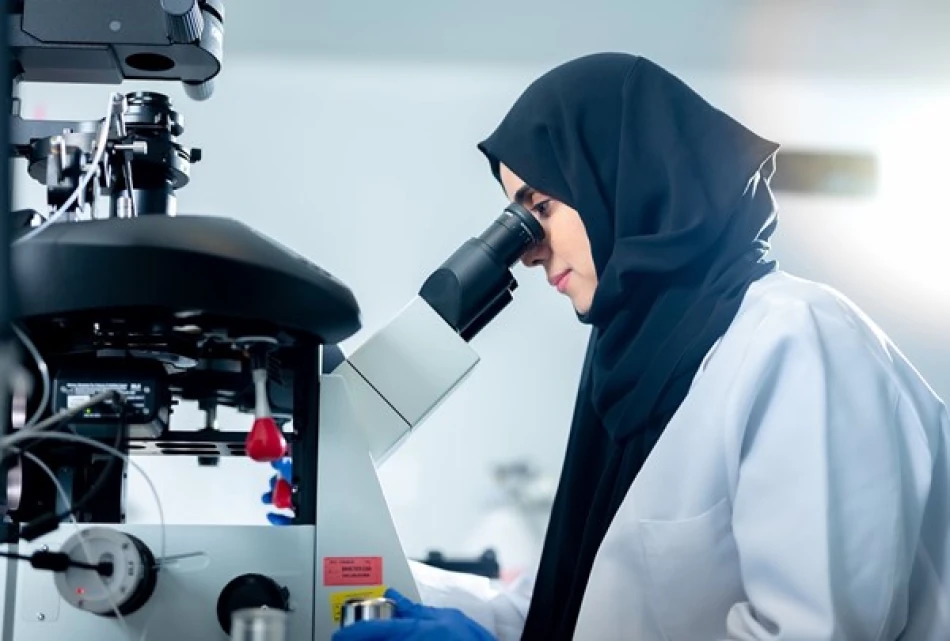
Emirati Women Doctors: Shaping the Future of UAE's Healthcare Sector
UAE's Medical Trailblazers: How Emirati Women Are Reshaping Healthcare Innovation
Emirati women doctors are spearheading a healthcare revolution in the UAE, leading breakthrough programs in heart transplants, genetic research, and precision medicine that position the nation as a global medical hub. Their achievements reflect not just individual excellence, but a strategic national investment in building indigenous expertise across specialized medical fields.
Breaking Barriers in Critical Specialties
The transformation is most visible in high-stakes medical areas traditionally dominated by international expertise. Dr. Nadia Obaid Al Matrooshi has become the UAE's first Emirati specialist in advanced heart failure and cardiac transplantation at Cleveland Clinic Abu Dhabi, leading the country's inaugural heart transplant program. This milestone represents more than medical achievement—it signals the UAE's transition from importing medical expertise to cultivating homegrown specialists in life-saving procedures.
In ophthalmology, Dr. Huda Saif Al Dhaheri heads the Eye Medicine and Surgery Department at Sheikh Shakhbout Medical City, implementing cutting-edge surgical techniques while building regional expertise networks. Her work demonstrates how local medical leadership can accelerate technology adoption and knowledge transfer within specialized fields.
Genomic Medicine: Building the Future of Precision Healthcare
Perhaps nowhere is the UAE's medical ambition more evident than in genomic research. Dr. Budour Al Qaf, a senior bioinformatics specialist at M42, leverages the UAE Genome Programme's database of over 500,000 participants to advance precision medicine initiatives. Her research focuses on genetic disorders affecting retinal health and blindness prevention—work that addresses both local health priorities and global knowledge gaps.
This genomic approach mirrors strategies employed by healthcare leaders like Singapore and the UK, where national genome programs drive both clinical innovation and economic development. The UAE's investment positions it to become a regional center for personalized medicine, particularly relevant given the genetic diversity of its population.
Addressing Underrepresented Populations
Dr. Al Qaf's research specifically targets genetic disorders in underrepresented communities—a critical gap in global medical knowledge. Most genetic databases historically skew toward European populations, making the UAE's diverse genomic data particularly valuable for developing treatments relevant to Middle Eastern, South Asian, and African populations.
Operational Excellence and Healthcare Management
Beyond clinical innovation, Emirati women are reshaping healthcare delivery systems. Dr. Maysa Al Karam serves as Executive Director of Medical Affairs at Abu Dhabi Stem Cell Center, while Dr. Mariam Al Mereikhi manages operational systems at Sheikh Shakhbout Medical City. Their leadership roles indicate a comprehensive approach to healthcare development—building both clinical capabilities and management expertise domestically.
This dual focus on clinical and operational leadership creates sustainable healthcare systems less dependent on expatriate management, a strategic advantage as healthcare costs rise globally and competition for international talent intensifies.
Strategic Implications for Regional Healthcare
The rise of Emirati women in medicine aligns with broader Gulf strategies to diversify economies beyond oil dependence. Healthcare represents a significant economic sector—the UAE's healthcare market is projected to reach $22 billion by 2025, driven by medical tourism, specialized treatments, and research initiatives.
Unlike neighboring countries that primarily import medical services, the UAE is building indigenous capabilities across the healthcare value chain. This approach reduces long-term costs, improves cultural competency in patient care, and creates intellectual property that can be exported regionally.
COVID-19 as a Catalyst
The pandemic accelerated recognition of local medical expertise, with Emirati women doctors prominently featured in frontline response efforts. This visibility helped shift public perception about the capabilities of national healthcare professionals, building trust that supports the broader healthcare localization strategy.
Investment in Specialized Training
The success stories reflect substantial investment in medical education and training. Specialists like Dr. Maryam Ghareeb Al Mansoori in rheumatology and immunology, and Dr. Iman Al Ameri in family medicine, represent the UAE's commitment to developing expertise across medical specialties—from common conditions to rare diseases.
This comprehensive approach ensures the healthcare system can handle diverse medical needs domestically, reducing medical tourism outflows while potentially attracting international patients seeking specialized care in a culturally familiar environment.
Building Tomorrow's Healthcare Ecosystem
The achievements of these medical professionals signal a fundamental shift in the UAE's healthcare landscape. By developing local expertise in everything from heart transplants to genetic counseling, the country is building a self-sustaining medical ecosystem that can compete globally while serving regional needs.
This transformation positions the UAE not just as a healthcare consumer, but as an innovator and exporter of medical knowledge—a strategic advantage that could define the next phase of the nation's economic development.
Most Viewed News

 Layla Al Mansoori
Layla Al Mansoori






